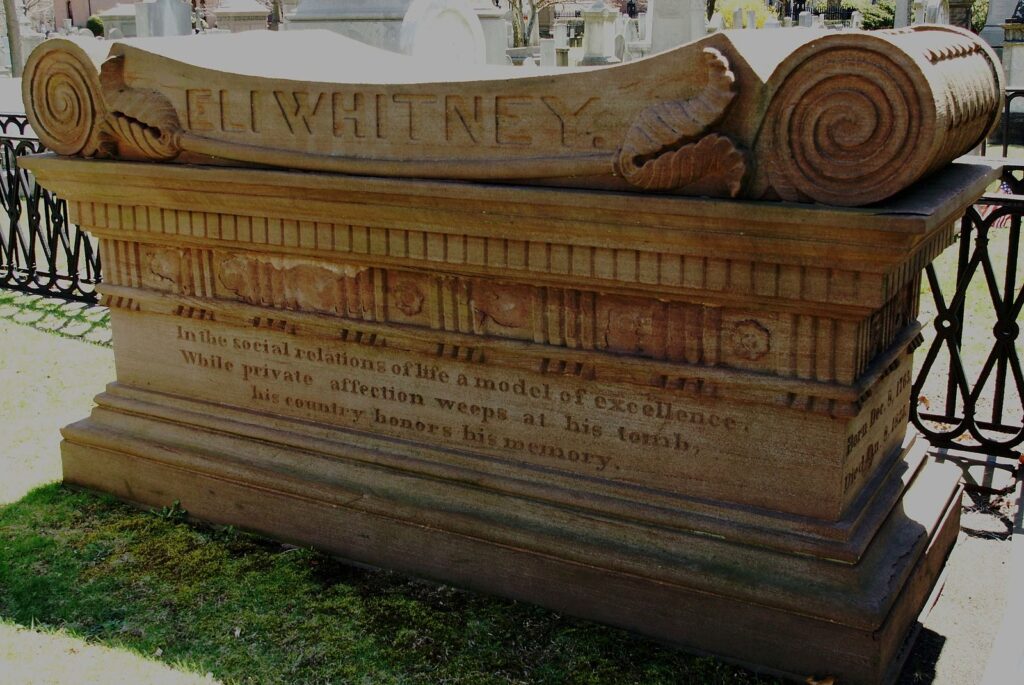Erik Visits an American Grave, Part 45
This is the grave of Eli Whitney.
Born in 1765 in Westborough, Massachusetts, Eli Whitney became one of the most important inventors in American history. He graduated from Yale in 1792, going late because his stepmother opposed it and he had to earn the money first, working as a teacher. He hoped to study law but continued to lack money so he went to Georgia to work as a private tutor. On the ship down to Georgia, he met the wife of the recently deceased Rhode Island Revolutionary War hero turned slaver Nathanael Greene. They became friends and invited him to her plantation. While there, Whitney invented the cotton gin, solving the long-term problem of cotton production, which was getting the seeds detached from the fibers, a labor-intensive operation making large-scale production unfeasible. He received the patent for his cotton gin in 1794. This led to an almost immediate rapid intensification of American slavery as cotton fever spread over the South and gave the slaveholding class a new profitable crop to crop after years of low-profit tobacco grown on depleted soils. Emancipation rhetoric ceased in places like Virginia and Americans rapidly sought to exterminate the Indians of the American South to clear their land for cotton, something nearly completed within 50 years.
The cotton gin did not make Whitney rich, which was often the case with successful inventions in early America because patent infringement was so common. But it did make Whitney famous. He received federal contracts to create arms with interchangeable parts as early as 1798. He did not invent this idea, but he significantly advanced it. The contract was not for the arms to be used in the United States, but rather to push the Americans’ rather obstinate definition of neutral rights, which in their minds meant selling whatever they wanted to whoever would buy it, including guns to both nations at war with each other. As he became rich on these contracts, he became ever more tightly connected with the Connecticut elite around Yale. He died of prostate cancer in New Haven in 1825.
Eli Whitney is buried in Grove Street Cemetery, New Haven, Connecticut.

